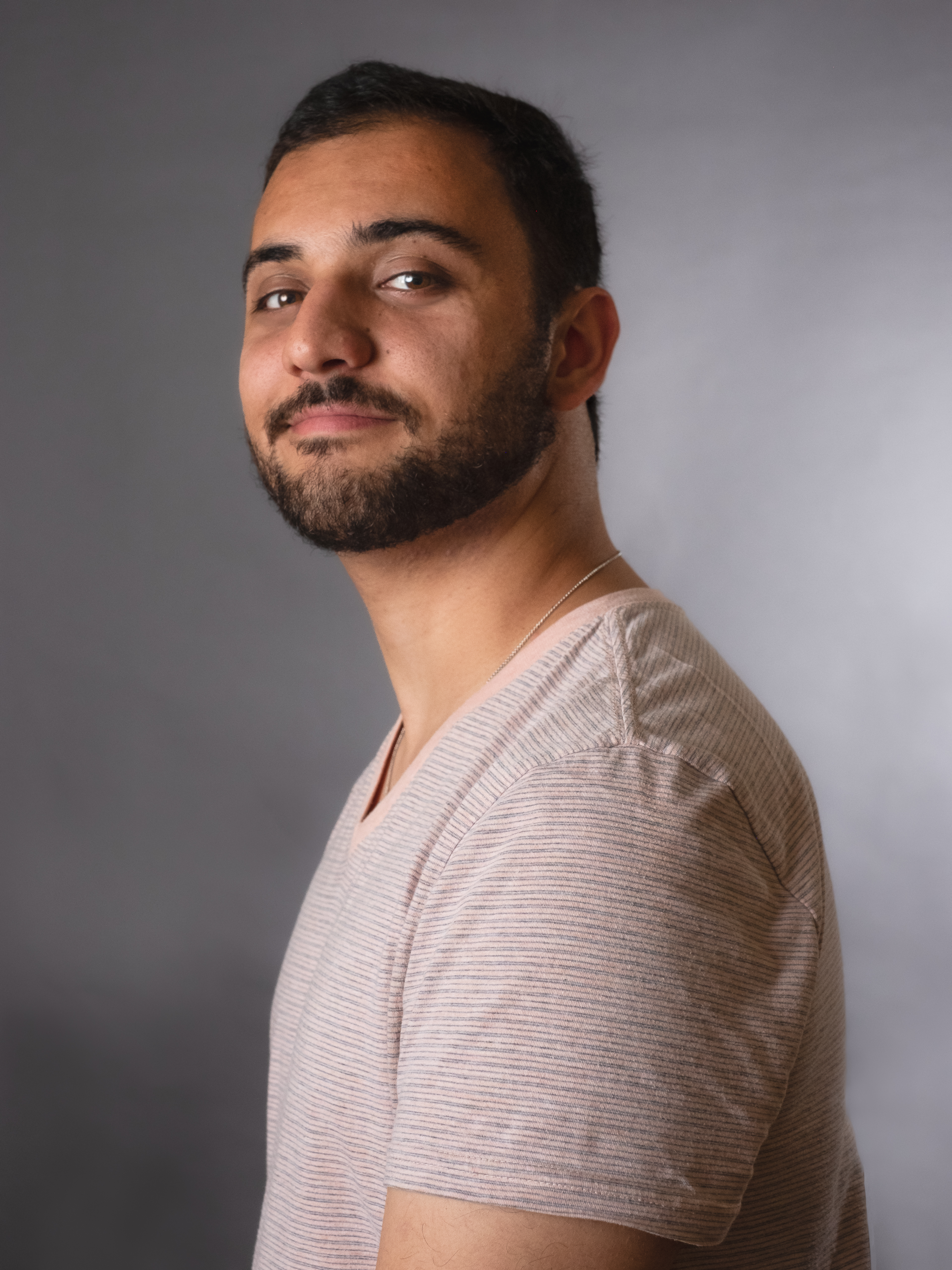Ron Barzilay (he/him)

Title: Class of 2023
“My view on Judaism has completely changed since coming to college, in that I finally came into contact with and fully understood what American Judaism is. I grew up in Sunnyvale, California, where American Judaism hardly exists. Silicon Valley is a total immigrant town and the Jewish immigrants are Israeli, and they either practice in an Orthodox style or are totally secular. So growing up, American Jews were the odd ones out, but here, in college, I’m the odd one out.
Being Sephardic and Israeli in a very Ashkenazi-centered American Jewish world is like being that unique little Shamash that stands out. It makes me want to talk about my family story more and about my unique experiences. My family history didn’t involve gefilte fish or Yiddish. It was bourekas and Ladino. There are all these ingrained experiences that all of my housemates and a lot of people at Hillel have that are just so central to the Ashkenazi-American experience that I just cannot relate to. It’s going to synagogue these times of the year, Sunday school, and summer camps. I did not have that. I was just an Israeli dude in the South Bay speaking Hebrew.
I also think that my unique experiences have altered my opinion of Judaism in general. I think that Judaism, as it was created, is a peoplehood. It’s a peoplehood with religious, cultural, and ethnic aspects that are all bunched together. And people embrace different parts of each, but I think that’s how it was pretty much through most of the diaspora. Like, my grandparents in Greece and Bulgaria, people all over the Pale of Settlement, and people in Morocco, they had their community and they were a people. They always felt like: we are Jews temporarily in this country, we are not necessarily part of it, so we’re not fully of this place.
But when Jews came to the United States through Ellis Island, Judaism became kind of reinterpreted to mimic American religions. Synagogues changed how they looked, they brought in organs and different kinds of songs. For many people, Judaism became just a religion, like a faith thing that you can flip on and off. A Catholic who stops practicing is not a Catholic. But a Jew who stops practicing is still as Jewish as the Chief Rabbi of Israel. But I feel like lots of American Jews don’t see it that way. It’s not really my place to say whether that’s good or bad, but I do think it’s still a misinterpretation of Judaism.
In America, there’s this whole bad Jew complex that I really don’t like. I’ve heard from so many people in Berkeley that they’re a “bad Jew” because they don’t practice. You don’t have to religiously practice to be a good Jew. So as a non-American Jew, I even more so try to counter that energy by being very comfortable being proudly Jewish, and also really proudly secular. I’ve rarely been to a temple, and I don’t like services that much, but I’m so proudly Jewish and I embrace that with the cultural things that make sense to me. To me, that’s embracing my family history, cuisine, all that good stuff, relaxing while still definitely using tech on Shabbat, being involved in the Israeli community, celebrating the parts of the holidays that I think are cool, and speaking Hebrew. It’s always being very open and proud about being Jewish and being open to talking about it, while not being religious.”
